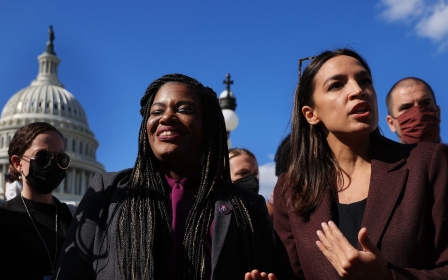American anthropologist association votes to boycott Israel

The American Anthropological Association (AAA) has voted to adopt a boycott of Israeli academic institutions over their role in the discrimination against Palestinians, in a major victory for the Palestinian-led Boycott, Divestment, and Sanctions (BDS) movement.
AAA President Ramona Pérez called the vote “contentious” but said the associations had made a “collective decision and it is now our duty to forge ahead, united in our commitment to advancing scholarly knowledge, finding solutions to human and social problems, and serving as a guardian of human rights”.
The vote, which took place by electronic ballot between 15 June and 14 July, resulted in a landslide in favour of a boycott, with 71 percent voting yes and 29 percent opposed.
Voter participation was relatively low, with just 37 percent of eligible members in the association casting a ballot, about 3,000 members.
The BDS movement is a non-violent initiative that seeks to challenge Israel's occupation and abuses of Palestinian human rights through economic, cultural, and academic boycotts, similar to the successful boycott campaigns against apartheid South Africa.
New MEE newsletter: Jerusalem Dispatch
Sign up to get the latest insights and analysis on Israel-Palestine, alongside Turkey Unpacked and other MEE newsletters
Jessica Winegar, a sociocultural anthropologist at Northwestern University, told Middle East Eye the resolution was “a meaningful demonstration of solidarity” with Palestinians against “Israel’s racist, discriminatory policies and brutal military rule”.
“As scholars with a long history of studying colonialism, anthropologists are all too familiar with the devastating harm of Israel’s oppression and theft of Palestinian land. This vote is an important step in showing that support for Palestinian rights goes hand in hand with the AAA’s values of human rights for all.”
The resolution is a symbolic shift for the AAA, marking the first time the organisation has supported a boycott of a country's academic institutions.
The last attempt at a boycott in 2016 failed by just 39 votes - with many anthropologists seeing the move as inherently political for an academic institution.
Even during the movement against the apartheid government of South Africa, which had seen massive mobilisation in support of a boycott, AAA did not endorse such a boycott against the country's academic institutions.
BDS welcomes 'historic vote'
“As Palestinians we warmly welcome the historic vote of the AAA membership to support our call to boycott Israeli academic institutions complicit in Israel’s regime of military occupation, settler colonialism and apartheid,” the BDS movement said in a statement on Monday.

The boycott will be limited to the AAA refraining from formal collaborations with Israeli academic institutions, according to a Monday statement. But the boycott will touch many aspects of academic life.
Israeli academic institutions will be barred from being listed in AAA’s published materials, advertising in AAA publications, participating in joint conferences, and republishing and reprinting articles from AAA publications in journals and publications.
Individual Israeli anthropologists will still be able to publish in AAA journals, attend conferences, and serve as editors in AAA journals. Notably, the AAA will also continue to allow Israeli researchers to attend events and publish with them even if their institution has paid for their expenses.
Israeli academia is increasingly becoming caught in the crosshairs of the Palestinian-Israeli conflict. Last month, the Biden administration moved to suspend the transfer of funds for research, science or technology projects taking place in the occupied West Bank.
The move reversed a Trump-era policy decision welcomed by many advocates of Israel in late 2020, which allowed US taxpayer funding to be used for science and technology projects in Israeli settlements in the occupied West Bank for the first time since 1967.
Middle East Eye delivers independent and unrivalled coverage and analysis of the Middle East, North Africa and beyond. To learn more about republishing this content and the associated fees, please fill out this form. More about MEE can be found here.




